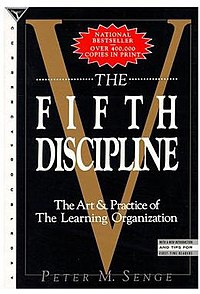
Learning organizations are those organizations that encourage adaptive and generative learning, where employees think beyond the narrow confines of their specific job function and are able to solve problems by working with others towards a common mission based on an understanding of the bigger picture of how things work together, how parts of the organization interact with other parts to form an efficiently functioning system.
How does this relate to my own experience?
At the NASA Goddard Space Flight Center, for example, one of the most sought-after training is a series of workshops called "Road to Mission Success" which provide employees with not just a traditional overview of how individual departments (Directorates) work and what their respective responsibilities are -- which is a typical overview one might get upon joining Goddard through the New Employee Orientation --, but more importantly, how the departments work together to accomplish first-of-a-kind and one-of-a kind missions. Designed by the Chief Knowledge Officer (Dr. Ed Rogers) rather than the training department, Road to Mission Success is an illustration of professional development activities developed based on the recognition that being a learning organization requires individuals within the organization to understand the entire system so that they can contribute more effectively and work more productively with others across the organization. No external, generic training can achieve what Road to Mission Success does for Goddard because it is developed and delivered internally and leverages talent within the organization. Any other organization would need to develop its own, completely different version of this course while using the same underlying principles.
I don't think personal mastery is sufficiently addressed in the NASA/Goddard Space Flight Center approach to the learning organization because individual growth and personal development are the domain of human capital and not particularly well integrated with the rest of the organizational learning and knowledge management activities. Mental models and the development of a shared vision are tackled through knowledge sharing workshops and case studies. Team learning is addressed through Pause and Learn (group reflection) sessions.
Again, as I have noted many times before, the personal or individual dimension of knowledge management and learning are often not sufficiently integrated and aligned with team and organizational aspects of the learning organization. It's a big missing or misaligned piece of the puzzle.